
50% Off Our Old Packaging – Same Fresh Hay, Just a New Look Coming Soon!
For a limited time, all hay products are 50% off. Fresh, nutritious, and perfect for rabbits, guinea pigs, and more!

For a limited time, all hay products are 50% off. Fresh, nutritious, and perfect for rabbits, guinea pigs, and more!
Stay in the loop on NEW products and deals!
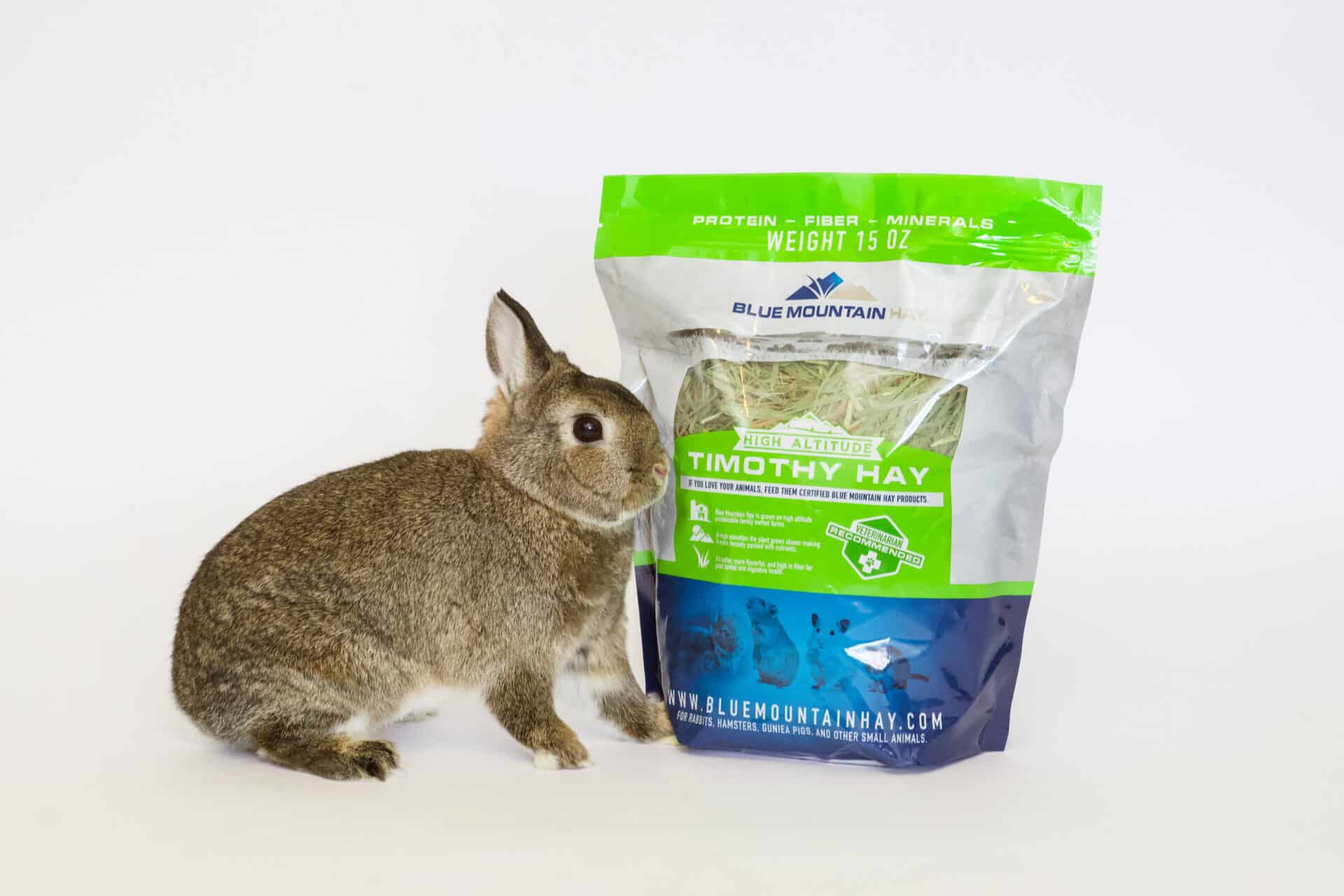
Timothy Hay is ranked as the most popular hay to feed rabbits. But are there different kinds of Timothy hay that are better than others? Our goal in this article is to give you simple but inclusive answers to all your timothy hay questions. Continue reading, or skip to our table comparing the different cuts of timothy hay or our price comparison chart of our different kinds of hay.
Timothy Hay is a perennial grass hay that is known for its nutritional value and texture variety. It grows best in high altitudes and places where the weather is more extreme: cold winters and springs, and warm dry summers. Timothy Hay is a popular choice among rabbits because of its tasty leafy elements. Later cuts also have flower clusters that rabbits tend to love. The first three cuts are usually the options for rabbit feed, which we look at more in depth down below.
Timothy Hay has a very good balance of fiber to other nutrients like protein or calcium.
Adequate fiber is essential for proper gastrointestinal mobility in rabbits. Timothy hay has a high content in fiber but also provides the tasty nutritional effects of protein.
Because of its high fiber content in the stems, Timothy Hay has proven to be a good sustainer of dental heath. Like chinchillas and guinea pigs, rabbits’ teeth never stop growing. Fiber is essential in keeping their teeth at optimum size and strength, ensuring their teeth stay at an appropriate length. Overly long crowns and improper growth are often the end result of pain and therefore inappropriate mastication (chewing).
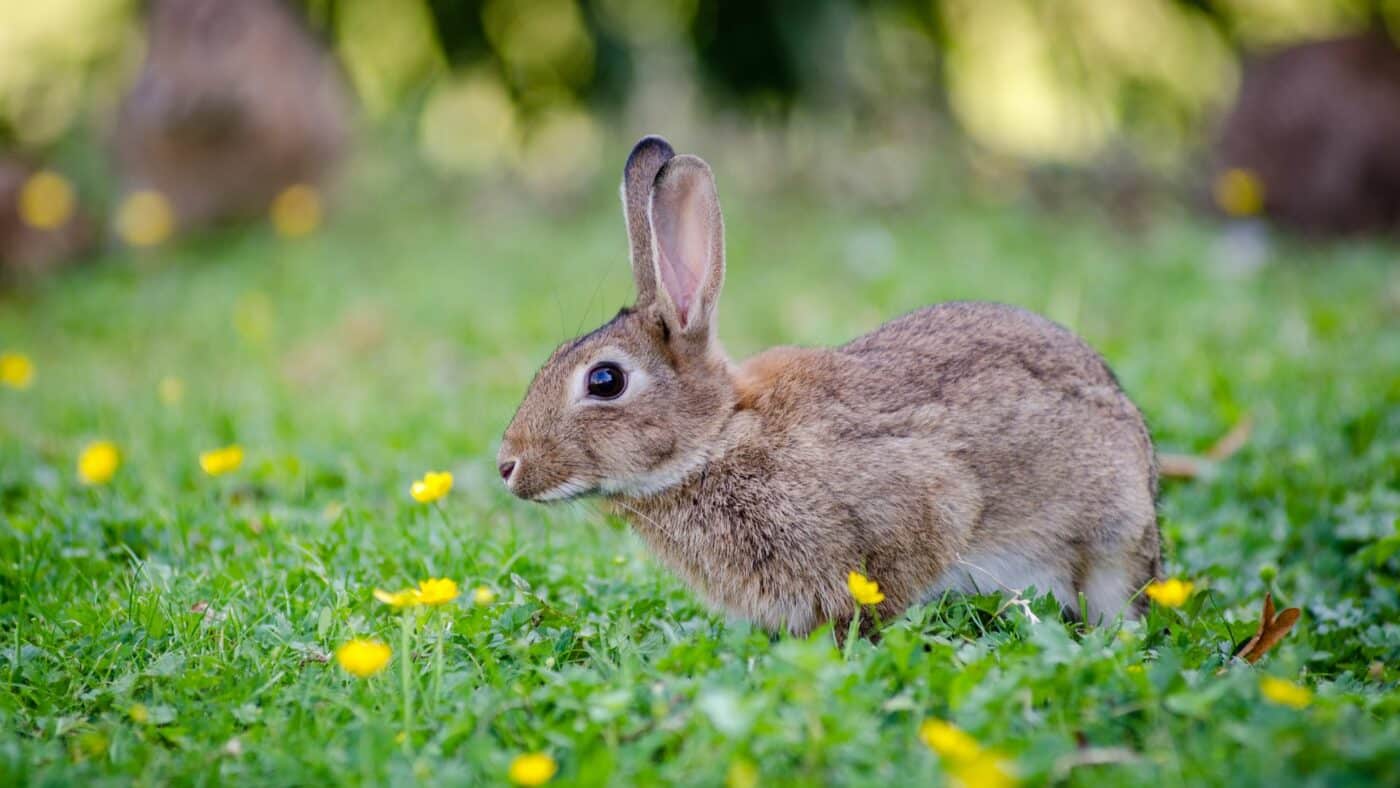
Second cut timothy hay is the most nutritionally balanced and popular hay to feed rabbits that don’t have other current specific needs. But each cut of hay has benefits and strengths for rabbits at different stages. We’ve condensed the information into a table you can see down below.
What is a certain “cut” of hay? A cut of hay is when the farmer will cut the hay and package/bale it and then repeat the process, letting the same field grow for another cutting. The first harvest is call the “1st cut”; the second harvest is called the “2nd cut” of that hay, and so on.
For rabbits, the best cut of Timothy hay is generally the second cut. The first cut is coarser and may contain more stems, while the third cut is softer and contains more leaves. The second cut strikes a good balance, providing a mix of fiber and leafy greens that is beneficial for a rabbit’s dental and digestive health.
Timothy hay is a crucial component of a rabbit’s diet, providing essential fiber that aids in digestion and helps maintain proper dental health. It also serves as a source of mental stimulation and environmental enrichment, as rabbits enjoy foraging and nibbling on hay throughout the day.
When choosing Timothy hay, look for a product that is fresh, green, and free from dust or mold. Additionally, consider the individual preferences and needs of your rabbit, as some may prefer a softer hay, while others may enjoy the coarser texture of the first cut. Providing a variety of hays can also be beneficial, as it adds interest to the rabbit’s diet.
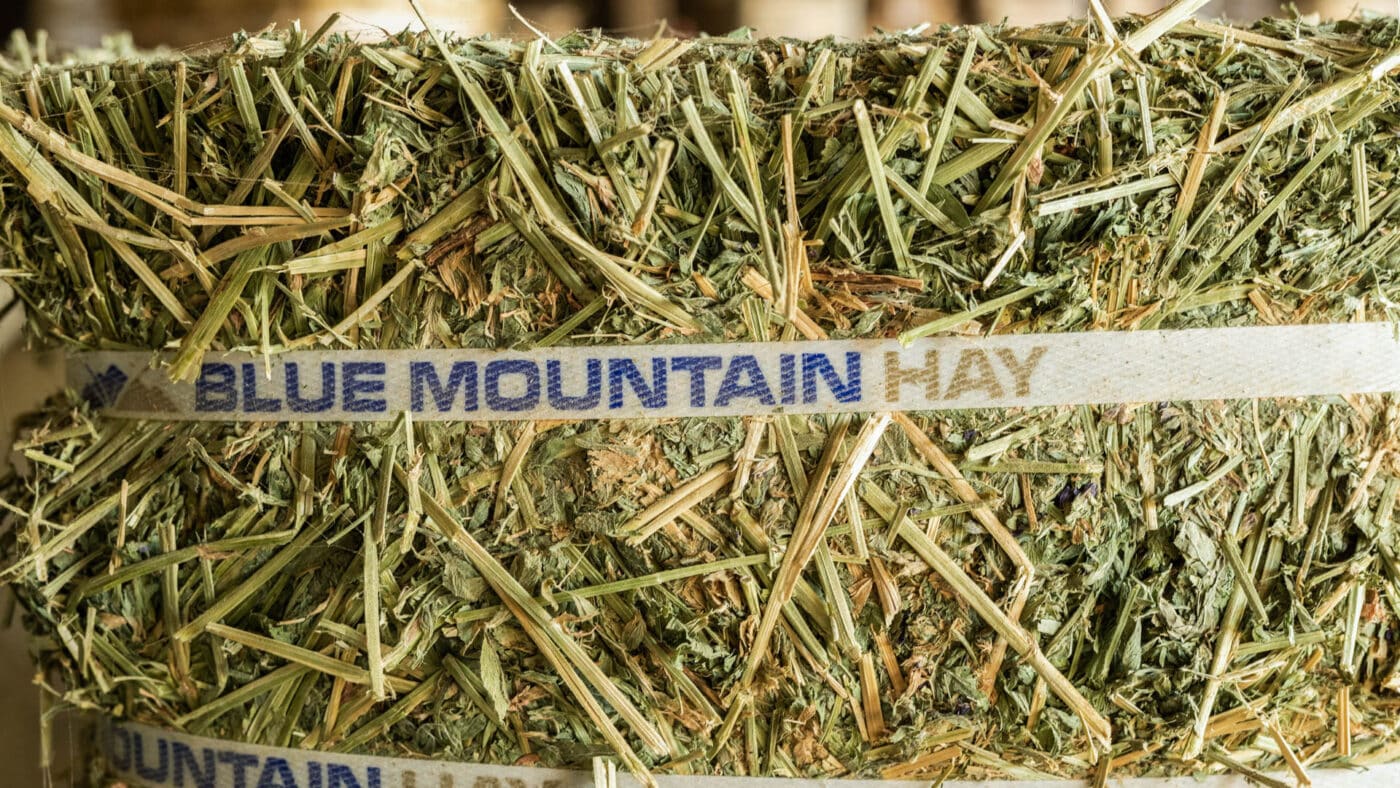
Timothy Hay is actually one of the economical hays, only preceded by possibly oat hay or orchard hay. However, it all depends on the company you buy it from because the price per pound can vary greatly.
Here is a table of how our Blue Mountain Hays compare in price per pound, based on the time of publication.
| Type of Hay | Cost per Pound |
| High-Altitude Timothy Hay | $7.00 |
| Timothy Grass Hay | $12.00 |
| Organic Alfalfa Hay | $8.00 |
| Alfalfa Hay | $12.00 |
| Orchard Grass Hay | $12.00 |
| Organic Meadow Hay | $14.00 |
| Organic Oat Hay | $14.00 |
| Teff Grass Hay | $14.00 |

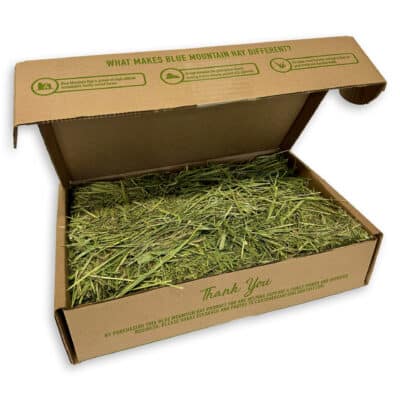
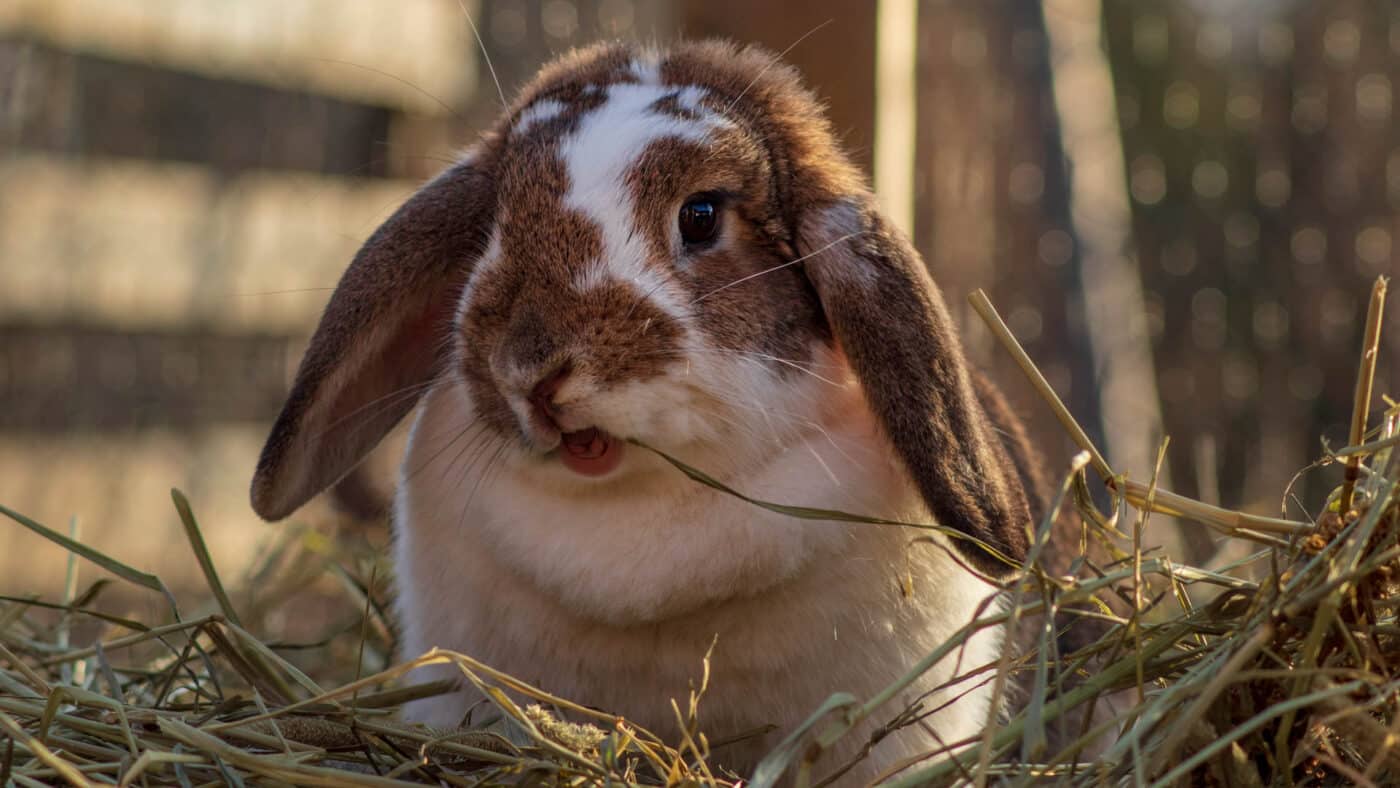
You should have a constant supply of Timothy hay available for your rabbit. You basically can’t give your rabbit too much hay. You should only limit the supply of hay if there are some diet needs or restrictions that need to be considered.
For example, you should not provide an unlimited supply of alfalfa hay to your adult rabbits, for it could cause digestive issues. Alfalfa hay is rich in calcium and fat, making it great for baby rabbits and pregnant or rabbit mamas. However, it’s not suitable for regular adult rabbit diets. If you’re considering adding alfalfa hay to your rabbit’s diet, it’s important to check with your vet first.
Not having a consistent, unlimited supply of hay for your rabbits could actually be detrimental to their teeth health and upkeep.
Always having plenty of Timothy Hay available to your rabbit is an important part of their health and diet. For a complete overview on hay options for rabbits, read our ultimate guide.
There really aren’t any substantial cons to feeding your rabbit Timothy hay. As previously mentioned, the first cutting of Timothy hay can be harder to eat and not as tasty as some hays. In general, while timothy hay may not be as flavorful as some options, the second cutting of hay is especially popular because of the good nutrient balance and numerous other benefits.
If your rabbit is underweight, see a rabbit-savvy veterinarian. Keep in mind that you can not rely on timothy hay in this situation. Learn more about why organic oat hay is a better solution for underweight rabbits and baby rabbits.
Timothy hay rarely causes allergies in rabbits and is generally the most highly recommended hay for rabbits. Often, excess dust in the hay may begin to cause irritation. If this is the case, please contact us immediately.
If you believe your rabbit is still experiencing allergies, make sure to have your furry friend diagnosed by a rabbit-savvy veterinarian right away.
For more information on hay and rabbits’ allergies try reading through this article. (Or if you have questions about RHDV2 in rabbits, read an article from our veterinarian.)
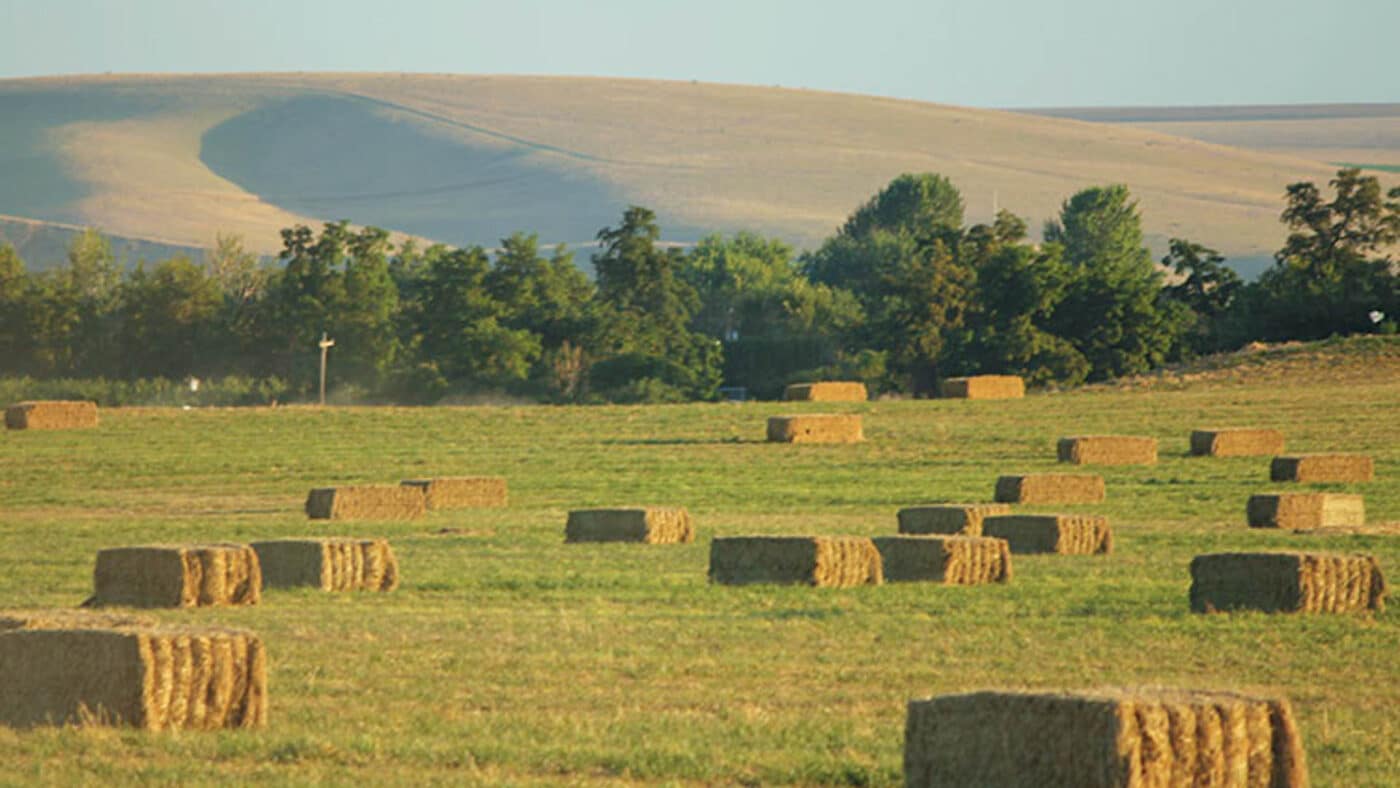
Blue Mountain Timothy hay is a high altitude grown hay. High-altitude cultivation of our Timothy Hay promotes slower growth, which enriches the nutrients and enhances digestibility. Our hay is hand-selected, inspected, and packaged thoroughly to ensure the very best food for your pet.
We have committed our Timothy hay to…
We offer our timothy hay in pouches or boxes in various sizes. You can also choose the frequency of purchase if you would like a consistent supply.
Check out our timothy hay, or see all the kinds of hay we offer for your pet!


Finding the right hay for your rabbit can be confusing, but we hope this article helped you find the best hay to keep your rabbit healthy. Timothy hay is a good source of nutrients and fiber, and while it is often the best option for your rabbit, sometimes other hay can be better. Check out our other articles for more information such as straw bedding for chickens or alfalfa hay for rabbits. We hope we can help in keeping your rabbits in optimal health.
Want to learn more about what we offer? Take a look at some of our other products, like our organic garden straw mulch for your garden.

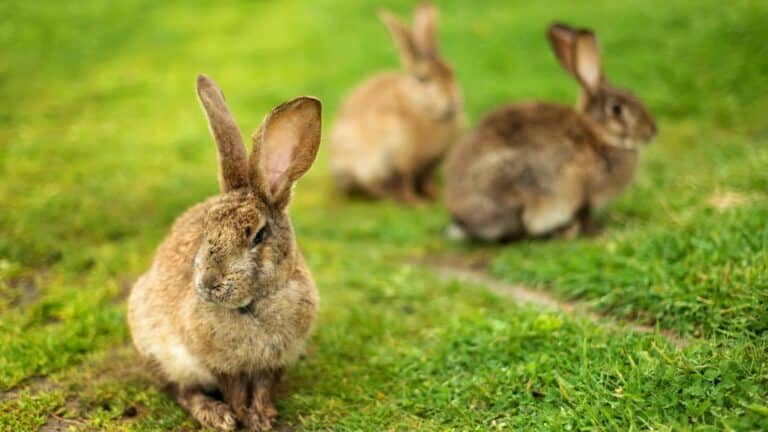
Got questions about which hay options are best for your pet rabbit? You’ve come to the right spot!
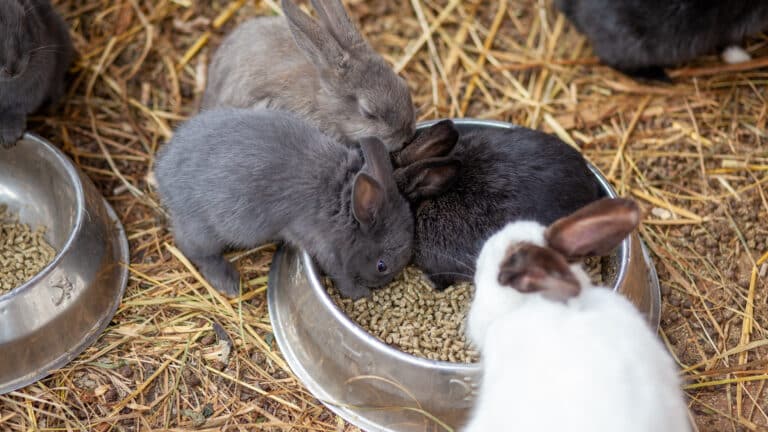
Don’t allow yourself to be ignorant about RHDV2. Read this article for more information!

Keep your plants cozy and safe this winter! Read our article on the many advantages of straw mulch during the winter months and how you can effectively use straw.